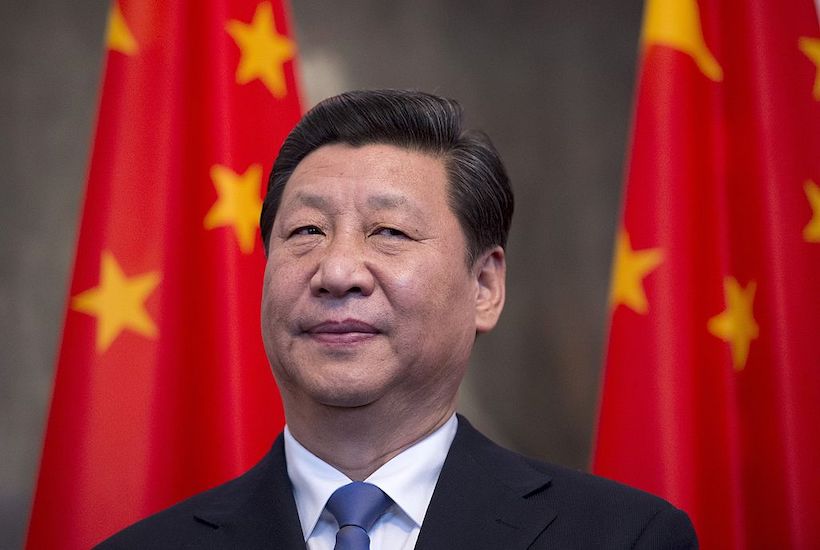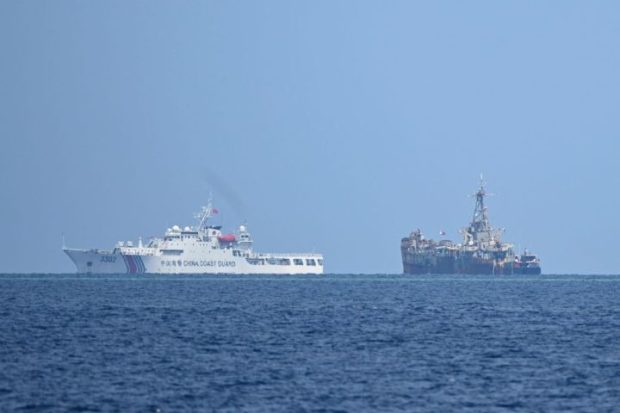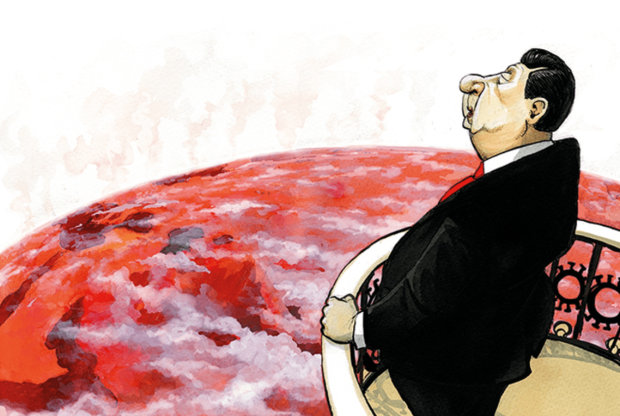For years it seemed as though China’s massively inflated property bubble would just keep on expanding, seemingly defying the laws of economics, as well as regular warnings of the dire consequences for the economy should it burst. Now that moment may have been reached, as the country’s biggest developer teeters on the brink of bankruptcy.
Evergrande is the biggest debtor in China – and in the world. It owes an estimated US$300 billion to Chinese banks, suppliers and foreign investors, and is struggling to meet interest payments. Some $US84 million of bond interest is due this Thursday, but the company has run out of money. Stock markets across the world are falling as the implications become more clear.
By one estimate Evergrande has taken deposits for more than 1.5 million apartments, bought off-plan, and riot police have been deployed outside the company’s Shenzhen headquarters where angry protesters gathered. ‘Evergrande, give back my money I earned with blood and sweat!’ yelled one who managed to force his way into the lobby.
They were joined by the company’s own employees, some three-quarters of whom stumped up their own money earlier this year to help fund the company’s operations. These were packaged as high-interest investments, which the company has now stopped paying.
Until recently Xu Jiayin, Evergrande’s well-connected chairman with a personal fortune estimated at more than US$10 billion, was rubbing shoulders with tycoons in Hong Kong; he was also part of the Communist Party’s 100th anniversary celebrations in Beijing. His troubles began last year when the government tightened rules on lending to property developers, which account for nearly 40 per cent of bank loans, in an effort to cool the market. Property prices have slumped by around 20 per cent this year.
Over more than two decades China’s seemingly endless property boom saw new cities sprouting across the country. There has been rampant speculation and a building binge that has seen the construction of vast and empty ‘ghost cities’ – China has 65 million empty homes by one estimate.
But a new emerging middle class saw buying property as the best use of their money, certainly better than the paltry returns from Chinese banks. As a result, banks fell over themselves to lend to the developers. Evergrande, leading the charge, branched out into bottled water and electric vehicles. It even bought a football club.
The meltdown at Evergrande is a challenge to the Communist Party. It will find the protests unnerving and will be aware of the potential knock-on effects on the wider financial system, which is riddled with debt. The Chinese economy is highly dependent on property and property-related goods and services, which by one estimate account for up to 28 per cent of GDP. Speculation now surrounds other property developers, and the stability of local government finances, since a large proportion of local income comes from selling land to the property developers.
There is already concern about the hidden debts of local government and their use of opaque financing vehicles. By one estimate outstanding local government debt is worth 44 per cent of GDP. Nobody knows for sure, since the financial system is so lacking in transparency. Even Evergrande’s US$300 billion of debts may be an underestimate, since the company is widely believed to have borrowed at least a third again off balance sheet.
The stakes are high and the government may simply bail out the company. It could reopen the floodgates of credit, as it has so many times before – and as it did to boost the economy as it recovered from Covid-19. But that strategy will boost sky-rocketing government debt and is anyway becoming increasingly ineffective. There are only so many apartment blocks and other infrastructure you can build. It now requires more and more credit for an ever-decreasing impact.
China’s debt-fuelled economy has attracted many prophets of doom. It is in many ways an accident waiting to happen. The Evergrande crisis comes amid a broader and seemingly arbitrary regulatory crackdown against Chinese tech companies and other corporate giants, which have put investors and markets in a febrile mood. It may not take much to push them over the edge – and that will have global implications.
Got something to add? Join the discussion and comment below.
Get 10 issues for just $10
Subscribe to The Spectator Australia today for the next 10 magazine issues, plus full online access, for just $10.





















Comments
Don't miss out
Join the conversation with other Spectator Australia readers. Subscribe to leave a comment.
SUBSCRIBEAlready a subscriber? Log in